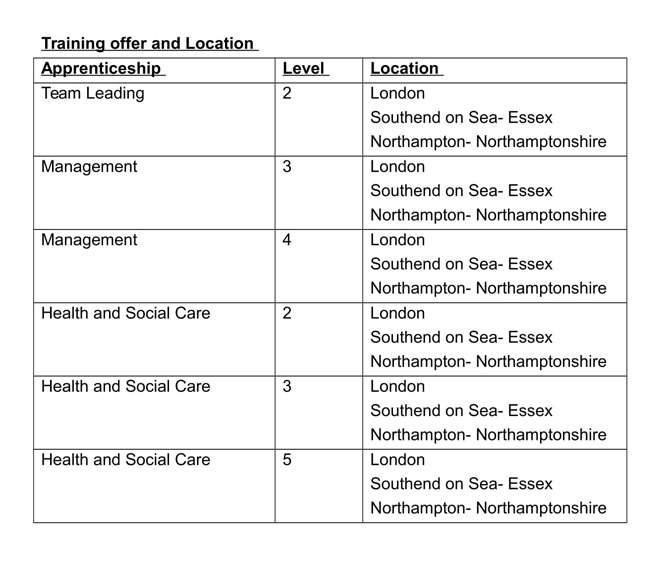Policy Statement and Purpose
Results Consortium limited is an independent training provider focusing on the needs of the employers, the learners and the community at large. We believe that successful employer engagement is essential for our training and education services in particular for our apprenticeship provisions.
The purpose of this policy is to set out our commitment to engage and work with employers to design, develop and enhance our curriculum offering opportunities for employers to make an active contribution towards the delivery of our apprenticeship.
The engagement allows us to respond effectively to the needs of our employers by providing a workforce with the opportunities for up skilling and professional
development.
Our commitment and working partnerships with employers are set out within this policy in order to outline the key mechanisms of delivering well developed, employer focused apprenticeships.
ESFA regulations outlined in the funding rules identifies key requirements of this policy, ensuring there is a transparent approach and evidence to the agreement of apprenticeships between an employer and training provider. The provision is also under scope of Ofsted and therefore the Education Inspection Framework (EIF) supports the development of this policy.
Scope
This policy covers all our training and education services provisions including our apprenticeship programme.
Roles and Responsibilities
Our Operations Manager has overall responsibility for this policy however the Account Managers will oversee the day to day management of the policy. This policy will be reviewed on an annual basis or as and when required.
Management Responsibilities
The Employer Account Managers are responsible for ensuring that a copy of this policy is available to the Delivery Team members and that the policy and procedures are reviewed annually. The Delivery Team member is offered the necessary training in order to successfully use this policy. The employer account managers have the responsibility to ensure this policy is fully explained and understood by our employers.
The Delivery Manager and Quality Manager are responsible for ensuring the adherence of this policy by the Delivery Team members and supporting them when they encounter issues with learners and/or employers.
Responsibilities
The Employer Engagement Manager who reports directly to the quality and curriculum manager holds overall responsibility for managing relationships with employers. The Employer Engagement Manager will lead on any complaints, contract review meetings, employer feedback and implement new processes as and when necessary.
The Recruitment Co-Ordinator is responsible for working with the Marketing Team to market Results learning programmes to employers and ensure all course information is updated on the online course portal. The Marketing team will also share good news stories and updates via social media, email, face to face meeting, phone calls and any methods deemed appropriate.
Tutors are responsible for involving employers throughout the whole learner journey. This includes programme development, delivery, encouraging participation in feedback at different stages and progress reviews. The tutor will act as a day to day contact for employers and be available to answer any general enquiries, questions or offer any support. Where the tutor is unable to help the employer or where there is a complaint this will be escalated to the Employer Engagement Manager. The matter can be further referred to the quality and curriculum manager.
All employees are required to act in accordance with this policy, to enable effective employer engagement.

